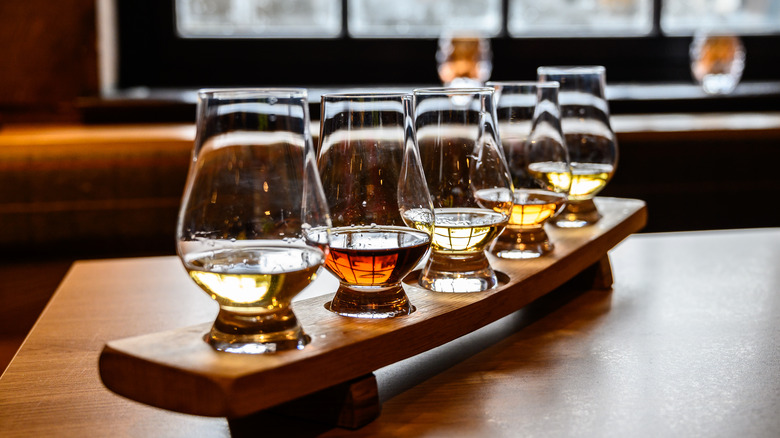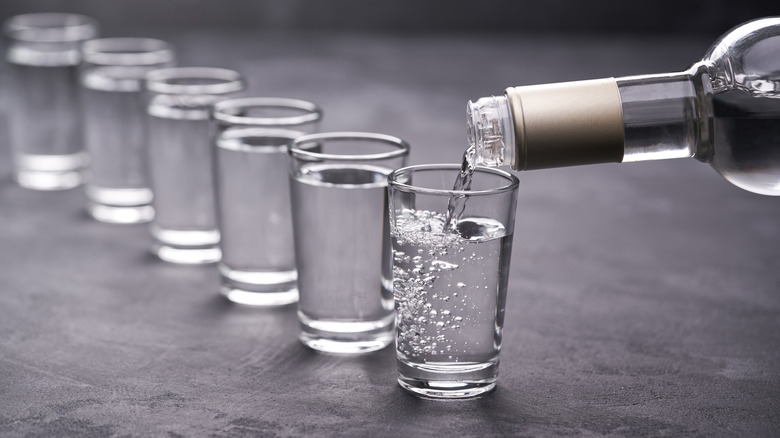The Big Difference Between Clear And Dark Alcohols
The primary difference between clear and dark liquor is their overall level of purity. While all alcohol contains impurities known as congeners, dark liquors tend to contain a higher concentration of them than clear alcohols (via Medical Daily). That's because congeners are chemical substances that are produced during the fermentation and distillation process, which is what gives certain liquors their unique color, aroma, and flavor.
How does this happen? Well, believe it or not, all alcohol starts out as clear. It is not until certain alcohol varieties, like whiskey, rum, and brandy, are fermented and aged in wooden barrels that more congeners are generated and they begin to take on a darker hue. Some examples of congeners include tannins, methanol, esters, aldehydes, and acetone. While the exact amount of congeners in any given liquor can vary from one to the next, alcohols that are more distilled tend to contain fewer congeners.
Which one is better for you?
While there is no type of alcohol that is actually good for you, clear liquor typically contains fewer impurities and allergens and is less likely to cause hangovers (via Bustle). Unlike dark liquor, clear alcohol contains little-to-no congeners. Since congeners may increase the severity of hangovers, that means you may be less likely to have a nasty headache the morning after drinking clear liquor than if you had drunk dark liquor.
Of course, this doesn't mean drinking clear alcohols, like gin or vodka, won't give you a hangover the next morning. If you drink enough alcohol, that's going to happen regardless of what color the drink is. "A good rule of thumb for liquors is that the clearer they are, the less of these substances they contain," Dr. Duy Nguyen, a psychiatrist at Beachway Therapy, told Bustle. "While light-colored drinks may lessen a hangover, imbibing them is not a license to become impaired and unsafe."
Interestingly enough, clear alcohol also contains fewer allergens than dark liquor. That's because they contain fewer impurities and are generally lower in histamine — a chemical created in the body that responds to allergies (via VinePair). That means that drinking clear liquor is less likely to cause your immune system to react to an allergy trigger. This doesn't mean it's impossible for vodka or any other clear liquor to trigger an allergic reaction, however. It all depends on the person. How your body responds to liquor, dark or clear, is going to be unique to you. As long as you drink responsibly and in moderation, there is no tangible benefit of drinking one type of alcohol over another.


